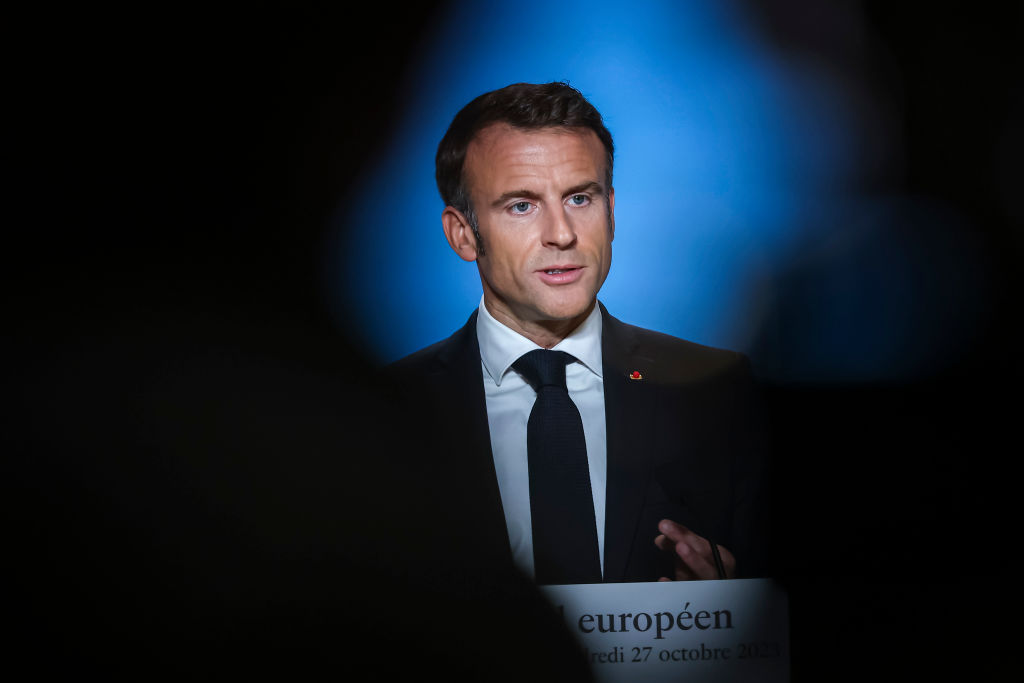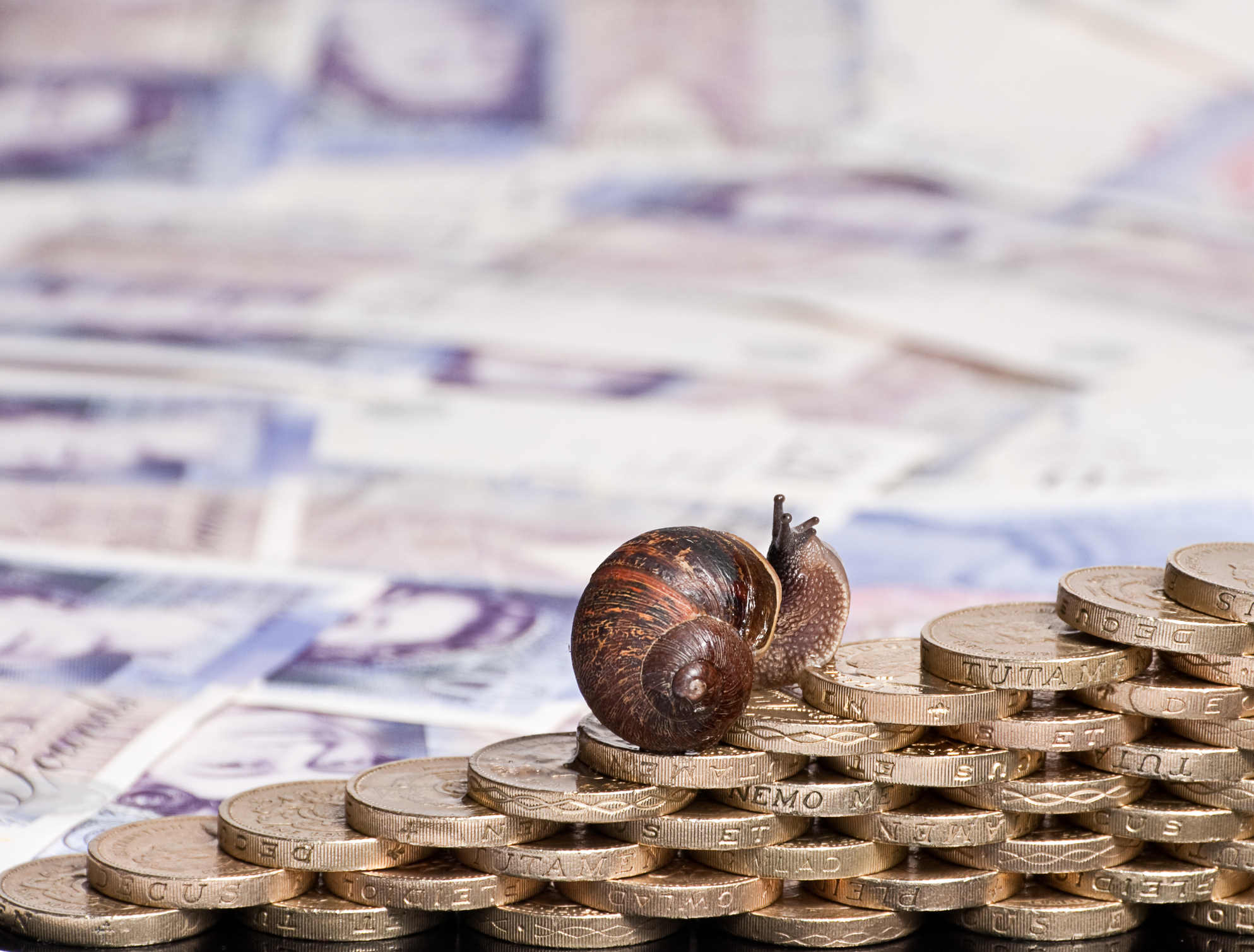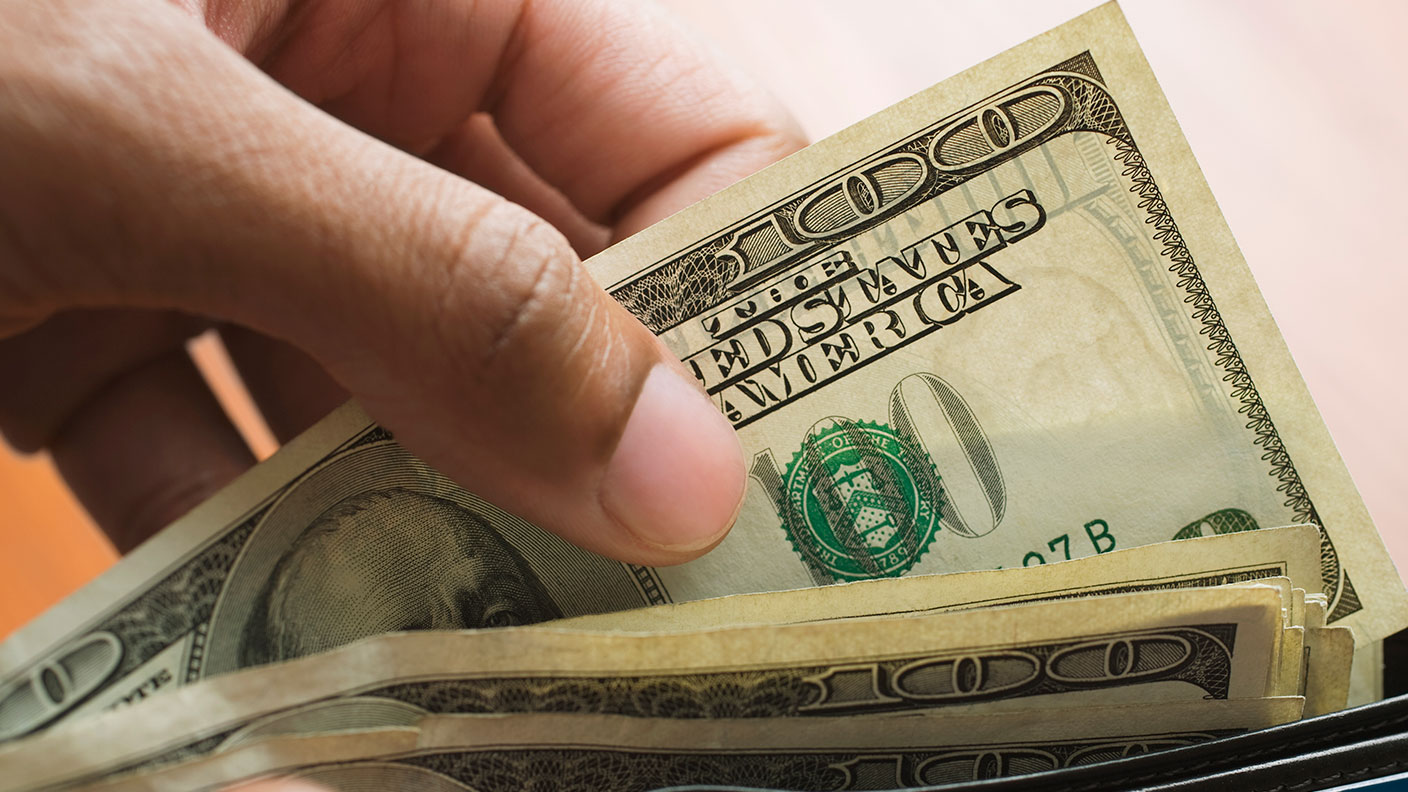The biggest secret in the gold market for the past six years is revealed
The amount of gold China owns has long been a secret. But now it's out, and it's less than anyone thought. John Stepek looks at why China's coming clean now.

Get the latest financial news, insights and expert analysis from our award-winning MoneyWeek team, to help you understand what really matters when it comes to your finances.
You are now subscribed
Your newsletter sign-up was successful
Want to add more newsletters?

One big mystery in the gold market has kept anyone interested in the precious metal guessing for the past six years: how much gold does China hold?
Well, now we know. At the end of last week, China revealed the scale of its current gold holdings.
And judging by the market reaction, it was a massive anti-climax
Try 6 free issues of MoneyWeek today
Get unparalleled financial insight, analysis and expert opinion you can profit from.

Sign up to Money Morning
Don't miss the latest investment and personal finances news, market analysis, plus money-saving tips with our free twice-daily newsletter
Don't miss the latest investment and personal finances news, market analysis, plus money-saving tips with our free twice-daily newsletter
China's hanging on to a lot less gold than anyone thought
Now China is holding 1,658 tonnes of gold. That's a jump of nearly 60% on 2009. By sheer size of stash, this makes China the fifth-biggest holder of gold in the world, overtaking Russia. (France, Italy, Germany and the US hold more, with the US holding the most).
Gold now represents 1.65% of China's foreign exchange holdings. That's up from 1.1% in 2009, but still way below the equivalent value for many other countries.
So in all, this is a big jump.
But it was also a great deal lower than anyone had expected. As Bloomberg reports, its own analysis service had thought that China's gold stash could have tripled to 3,500 tonnes. That's taken from looking at increasing mining output and ongoing imports of the metal.
Partly as a result of the disappointment, the gold price has slid.
You see, one of the narratives doing the rounds about gold has been that China was effectively aiming to back its own currency the yuan with gold. In some more aggressive variations of the story, China and Russia would team up to launch some sort of gold-backed currency to replace the US dollar.
The fact that China hasn't been expanding its reserves as dramatically as expected suggests that this theory is either wrong or very premature.
Why hasn't China bought more gold?
There's no doubt that China does want to increase the profile of its currency, and that's exactly what you'd expect. China is clearly competing with the US to be global superpower and if it's serious about that, then the yuan needs to become much more important to financial markets.
So while the idea that it wants to launch a gold-backed currency might be extreme, it would certainly like the yuan to be a reserve currency'. And gold is one aspect of that. It's no coincidence that the US holds the most gold of all the nations listed above.
China regards its gold reserves as a state secret. The main reason for updating on its gold reserves just now is that it would like the yuan to be included as part of the International Monetary Fund's special drawing rights (SDR) basket.
The idea of the SDR is tricky to explain, but it's almost a form of Frankenstein currency'. Its value is based on a basket made up of the US dollar, the euro, the pound and the Japanese yen the world's four most important currencies.
The IMF will be updating on the composition of this basket later this year. China hopes to be included, and most economists surveyed by Bloomberg last month reckoned the currency as much for political reasons as economic ones will be included in SDRs from the start of next year.
That'll be a sign that the yuan is coming of age, and a step towards it becoming a full-blown reserve currency.
So why hasn't China stockpiled more gold? One reason is that it might find it tricky to do so without driving up the price. As the central bank put it: "The capacity of the gold market is small compared with China's foreign reserves; if foreign exchange reserves were used to buy large amounts of gold in a short time, it will easily affect the market."
Of course, China could be fudging the figures in some way.
China is also the world's biggest gold producer. So as Bernard Dahdah at French bank Natixis put it: "It begs the question of what's been happening to the gold produced that hasn't been taken by the central bank".
Questioning Chinese government statistics is hardly evidence of a conspiratorial mindset. The data can be made to put over the message that the Chinese government would prefer markets to hear. If you assume that China wants to reveal enough gold to persuade the IMF, but not so much that everyone starts asking what they're up to, then you could argue that there's every reason for it to understate its reserves.
We'll never know for sure. But at the end of the day, as Joni Teves of UBS put it: "What matters now is whether the market believes they intend to continue buying". If these figures are accurate, then China still has a way to go before its own gold pile comes close to matching those of its closest rivals. "They do appear to leave the door open to further purchases, which should limit the downside for gold."
Our view on gold is that it's worth having about 5%-10% of your portfolio in the physical metal as insurance against another financial crash. That still holds. And this might even prove a decent rebalancing opportunity.
(By the way, if you want to know more about how you should go about building a portfolio, then we've got something that we think every MoneyWeek reader looking to invest over the long term will be interested in. It's only open to MoneyWeek subscribers you can find out more about it here).
Get the latest financial news, insights and expert analysis from our award-winning MoneyWeek team, to help you understand what really matters when it comes to your finances.

-
 Financial education: how to teach children about money
Financial education: how to teach children about moneyFinancial education was added to the national curriculum more than a decade ago, but it doesn’t seem to have done much good. It’s time to take back control
-
 Investing in Taiwan: profit from the rise of Asia’s Silicon Valley
Investing in Taiwan: profit from the rise of Asia’s Silicon ValleyTaiwan has become a technology manufacturing powerhouse. Smart investors should buy in now, says Matthew Partridge
-
 The French economy's Macron bubble is bursting
The French economy's Macron bubble is burstingCheap debt and a luxury boom have flattered the French economy. That streak of luck is running out.
-
 What is stagflation and what can be done about it?
What is stagflation and what can be done about it?The UK economy is showing signs of weakness, but inflation remains stubbornly high – a dangerous combination that economists call ‘stagflation’
-
 Mohamed El-Erian: inflation, disinflation and the mistakes of central bankers
Mohamed El-Erian: inflation, disinflation and the mistakes of central bankersPodcasts Merryn talks to economist Mohamed El-Erian about the state of the global economy, how the Fed became hostage to the marketplace, and how you should position your investments in distorted markets.
-
 Three key lessons on the 50th anniversary of the gold standard's demise
Three key lessons on the 50th anniversary of the gold standard's demiseAnalysis Since 1973, the global monetary system has been backed by the dollar, not by gold. John Stepek looks at whether that will last and what may be next.
-
 The IMF and World Bank: a truly gruesome twosome
The IMF and World Bank: a truly gruesome twosomeOpinion The International Monetary Fund and the World Bank, set up in 1944, now look sclerotic and ineffectual, says Jonathan Compton.
-
Greece emerges from intensive care
Features Following three rescue packages in eight years, the eurozone’s problem child is standing on its own two feet again. But the debt crisis has merely been managed, not resolved. Alex Rankine reports.
-
 Greece: another serving of EU fudge
Greece: another serving of EU fudgeFeatures Greece is finally emerging from its financial rescue programme, but it will have to keep a tight lid on spending for years.
-
 Rattled investors flee Turkey
Rattled investors flee TurkeyFeatures Investors' flight form Turkey, after Recep Tayyip Erdogan won last Sunday’s election, is making a nasty recession all the more likely.